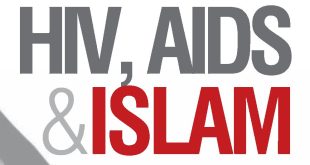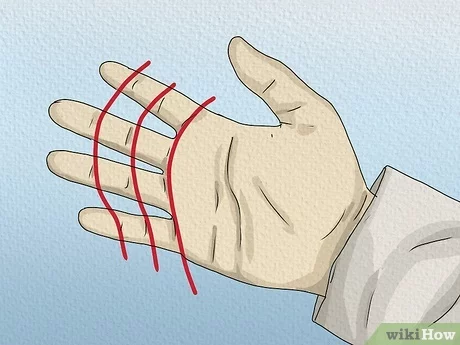
During the time of the Prophet, vinegar was generally prepared from grapes and dates, and was known as khal al-‘inab, khal al-khamr. According to the Prophet Muhammad, “The best vinegar is made from wine.” On one occasion, he exclaimed: “How good a condiment is vinegar.”1 He also said: “O Allah, bless vinegar. No house will be destitute where there is vinegar.”2 He also stated that “Vinegar is a comfort for man.”3 He is also said that “Allah has put blessings in vinegar, for truly it was the seasoning used by the prophets before me.”4 He also said that “A household which has vinegar will never go hungry.”5 In his Tibb al-nabbi, Chaghhayni reports that the Messenger of Allah loved vinegar even more than fruit, grapes or water-melon.6
Besides its culinary uses, Imam ‘Ali ibn Abi Talib used to prescribe vinegar to treat intestinal parasites. In one such case, he said: “Give him wine vinegar to drink for it kills the creatures in the belly (dawwab al-butn).” The Imam also said that there was nothing better than to have vinegar with bread for its cures bile and nausea and protects the heart. Imam ‘Ali al-Naqi also said that “Wine vinegar (khal al-khumr) strengthens the gums (al-laththa).”7
According to the Prophet Muhammad, “The best vinegar is made from wine.” On one occasion, he exclaimed: “How good a condiment is vinegar.”1 He also said: “O Allah, bless vinegar. No house will be destitute where there is vinegar.”2 He also stated that “Vinegar is a comfort for man.”3 He is also said that “Allah has put blessings in vinegar, for truly it was the seasoning used by the prophets before me.”4
Issues in Identification
It is the consensus that khal is Arabic for vinegar.
Properties and Use
Vinegar is made from the oxidation of ethanol in wine, cider, beer, fermented fruit juice, or nearly any other liquid containing alcohol, a process which yields acetic acid as its key ingredient. Besides its use as an antiseptic, vinegar is used in the treatment of diabetes, to decrease hunger, to kill intestinal parasites, and to promote cardiovascular health.
Scientific Studies
Anti-diabetic Activity
According to several studies, small amounts of vinegar added to food, or taken with a meal, have been shown to reduce the glycemic index of carbohydrates in both healthy and diabetic recipients.8 This has also been expressed as lower glycemic index ratings in the region of 30%.9
Anti-hunger Activity
Multiple trials indicate that the intake of vinegar increases satiety, thus reducing the amount of food consumed.10 Even a single application of vinegar can lead to reduced food intake for a whole day.11 It is related that, in difficult times, Imam ‘Ali ibn Abi Talib and his wife Fatimah al-Zahra used to eat nothing but oil and vinegar. The olive oil was employed for its nutritional value while the vinegar was used to suppress the pangs of hunger.
Anti-parasitic Activity
As indicated by Imam ‘Ali ibn Abi Talib, apple cider vinegar works as a vermifuge. Commonly used in both humans and livestock, vinegar lowers pH levels from high alkaline conditions which promote parasite growth.
Multiple Activities
The potassium found in apple cider vinegar is beneficial to the heart, promoting the health of veins and capillaries. Apple cider vinegar bears closer resemblance to digestive juices than any other liquid, helping break down food effectively, thus preventing heartburn and indigestion.
************************************************************************************************************************************************************************
[1] Muslim. Jami‘ al-sahih. al-Riyyad: Bayt al-Afkar al-Dawliyyah li al-Nashr, 1998; Abu Dawud S. Sahih Sunan Abu Dawud. Riyyad: Maktab al-Tarbiyyah al-‘Arabi li-Duwwal al-Khalij, 1989; Ibn Majah M. Sunan. Trans. MT Ansari. Lahore: Kazi Publications, 1994.;
[2] Tirmidhi M. al-Jami‘ al-sahih. al-Qahirah: Mustafa al-Babi al-Ḥalabi, [1937-]; Bayhaqi A. Sunan al-kubra. Bayrut: Dar Sadir, 1968.
[3] Muslim. Jami‘ al-sahih. al-Riyyad: Bayt al-Afkar al-Dawliyyah li al-Nashr, 1998.
[4] Muslim. Jami‘ al-sahih. al-Riyyad: Bayt al-Afkar al-Dawliyyah li al-Nashr, 1998; Ibn Majah, M. Sunan. Trans. MT Ansari. Lahore: Kazi Publications, 1994; Suyuti J. As-Suyuti’s Medicine of the Prophet. Ed. A Thomson. London: Ta-Ha Publishers, 1994: 59; Ibn Tulun S. al-manhal al-rawi fi al-Tibb al-nabawi. Ed. ‘Aziz Bayk. Riyyad: Dar ‘alam al-kutub, 1995.
[5] Tirmidhi M. al-Jami‘ al-sahih. al-Qahirah: Mustafa al-Babi al-Ḥalabi, [1937-]; Bayhaqi A. Sunan al-kubra. Bayrut: Dar Sadir, 1968.
[6] Chaghhayni M. Tibb al-nabbi. Trans. C Elgood. Osiris 1962;14:190.
[7] Nisaburi A. Islamic Medical Wisdom: The Tibb al-a’immah. Trans. B Ispahany. Ed. AJ Newman. London: The Muhammadi Trust, 1991:16.
[8] Liljeberg H, Bjorck I. Delayed gastric emptying rate may explain improved glycemia in healthy subjects to a starchy meal with added vinegar. Eur J Clin Nutr. 1998;64:886-893; Leeman M, Ostman E. Bjorck I. Vinegar dressing and cold storage of potatoes lowers postprandial glycemic and insulinaemic responses in healthy subjects. Eur J Clin Nutr. 2005;59:1266-1271; Johnston CS, Kim CM, Buller AJ. Vinegar improves insulin sensitivity to a high carbohydrate meal in subjects with insulin resistance or type 2 diabetes mellitus. Diabetes Care 2004;27:281-282.
[9] Sugiyama M. Tang AC, Wakaki Y, Koyama W. Glycemic index of single and mixed meal foods among common Japanese foods with white rice as a reference food. Eur J Clin Nutr. 2003; 57:743-752; Ostman EM, Liljeberg Elmstahl HG, Bjorck IM. Inconsistency between glycemic and insulinemic responses to regular and fermented milk products. Am J Clin Nutr. 2001;74:96-100.
[10] Ostman E, Granfeldt Y, Persson L, Bjorck I. Vinegar supplementation lowers glucose and insuline responses and increases satiety after a bread meal in healthy subjects. Eur J Clin Nutr. 2005;59:983-988; Roberts SB. [High-glycemic index foods, hunger, and obesity: is there a connection?] Nutr. Rev. 2000;58:168-169.
Source : http://muslimvillage.com
Post Disclaimer | Support Us
Support Us
The sailanmuslim.com web site entirely supported by individual donors and well wishers. If you regularly visit this site and wish to show your appreciation, or if you wish to see further development of sailanmuslim.com, please donate us
IMPORTANT : All content hosted on sailanmuslim.com is solely for non-commercial purposes and with the permission of original copyright holders. Any other use of the hosted content, such as for financial gain, requires express approval from the copyright owners.
 Sri lanka Muslims Web Portal Sri Lanka Muslims News Center
Sri lanka Muslims Web Portal Sri Lanka Muslims News Center
 Donate
Donate


